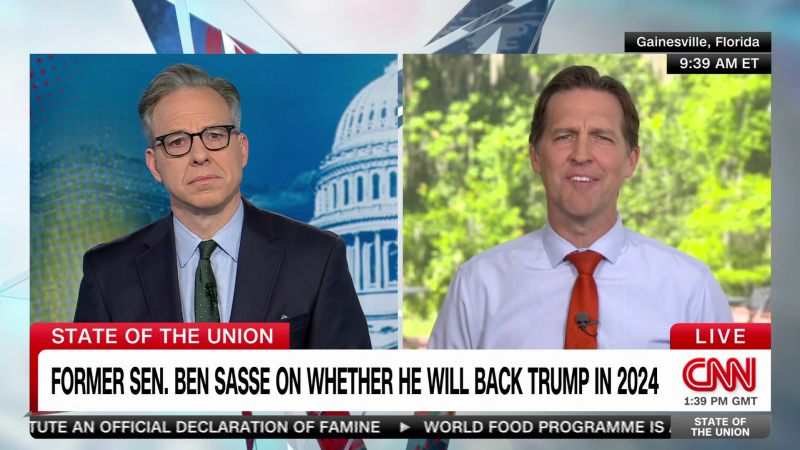Sasse’s response comes after a group of protesters disrupted a meeting of the Student Senate at the University of Florida, shouting slogans denouncing Israel and demanding the school divest from companies with ties to the Israeli military. Sasse argues that while he supports the right to peaceful protest, he does not believe that disruptive behavior and yelling are effective ways to bring about change. He suggests that engaging in civil discourse and dialogue would be more productive in addressing complex issues such as the Israel-Hamas conflict.
Furthermore, Sasse expresses concern over the impact that the protests may have on the campus community, noting that some students and faculty members may feel intimidated or uncomfortable as a result of the demonstrations. He emphasizes the importance of fostering an environment where individuals feel safe expressing their views and engaging in respectful dialogue, regardless of their opinions on controversial issues. Sasse asserts that the university should prioritize creating a space that encourages critical thinking, open-mindedness, and constructive debate among students, faculty, and staff.
Sasse acknowledges that the Israel-Hamas conflict is a sensitive and divisive issue, with strong emotions on both sides of the debate. He emphasizes the need for individuals to listen to and understand differing perspectives, rather than resorting to shouting and disruption as a means of advocacy. Sasse expresses his commitment to upholding the principles of free speech and academic freedom on campus while also ensuring that the university remains a welcoming and inclusive environment for all members of the community.
In response to Tapper’s question about whether the university would consider divesting from companies with ties to the Israeli military, Sasse reiterates his stance that the university does not negotiate with individuals or groups who engage in disruptive behavior. He emphasizes that the university’s decisions regarding investments and partnerships are guided by ethical, legal, and financial considerations, rather than pressure from outside groups. Sasse argues that the university’s primary responsibility is to provide a safe and supportive learning environment for all students, and that decisions related to investments should be made with careful consideration and deliberation.
Sasse’s comments reflect a broader debate surrounding free speech and protest on college campuses, with some arguing that disruptive demonstrations can stifle open dialogue and academic freedom. Others believe that protests are essential tools for raising awareness and promoting social change, particularly on issues of human rights and social justice. The Israel-Hamas conflict has been a polarizing issue for many universities, with some institutions facing pressure to take a stance on the conflict through divestment or other means. Sasse’s response to the protests at the University of Florida highlights the challenges that university leaders face in balancing academic freedom, free speech, and the need to maintain a safe and inclusive campus environment for all members of the community.
Overall, Sasse’s reaction to the campus protests at the University of Florida underscores the importance of fostering a culture of respect, dialogue, and open-mindedness on college campuses. While acknowledging the right to peaceful protest, Sasse emphasizes the need for individuals to engage in civil discourse and constructive dialogue when addressing complex and divisive issues. By prioritizing academic freedom, free speech, and inclusivity, university leaders can help create a campus environment where students, faculty, and staff feel safe expressing their views and engaging in meaningful debate. Sasse’s commitment to upholding these principles while also considering the ethical and financial implications of the university’s decisions highlights the complexities of managing competing interests on college campuses.


